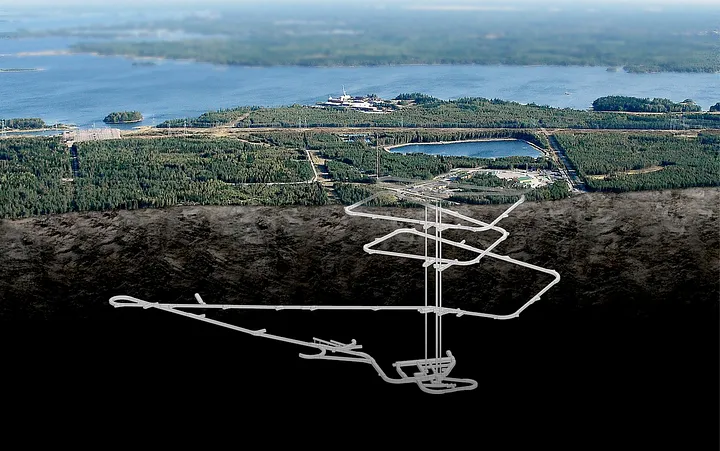Author: Kiersten Sundell

Something we were recently asked on TikTok was: “Why does the waste stored at Onkalo geologic repository in Finland need to be retrievable? Is there a specific Finnish law that requires this?”
There is — you can find it in a 2001 report from the Nuclear Energy Agency titled “Stepwise Decision Making in Finland for the Disposal of Spent Nuclear Fuel.”
And it might not be for the reason you think.
I originally was under the impression that the point of ensuring retrievability was so that Finland could recycle and reuse nuclear waste once the appropriate fuel recycling technology became available.
It should be noted that this technology does currently exist and it is used in Russia, India, and France. France actually gets about 10% of their power from recycled nuclear fuel. Future recycling could be part of Finland’s motivations, but wasn’t the main reason for retrievability in 2001.
The primary reason for the retrievability clause was actually to address and validate the concerns of the host community. The community played a key role in decision-making, and some people were worried that there could be issues that arise with the repository’s design in future years. Enhancing the retrievability of the waste significantly increased public support for the project.
Officials carrying out the Environmental Impact Assessment for Onkalo also emphasized the moral and practical importance of retrievability — thus, the current law.
While it’s true that retrievability technology makes the project more expensive and complicated, one of the most important considerations of any environmental project is making sure that consent is obtained from those who live nearby, in order to avoid more infractions of environmental justice from the energy industry.
Head to our TikTok to watch the full video on policy at Onkalo!


